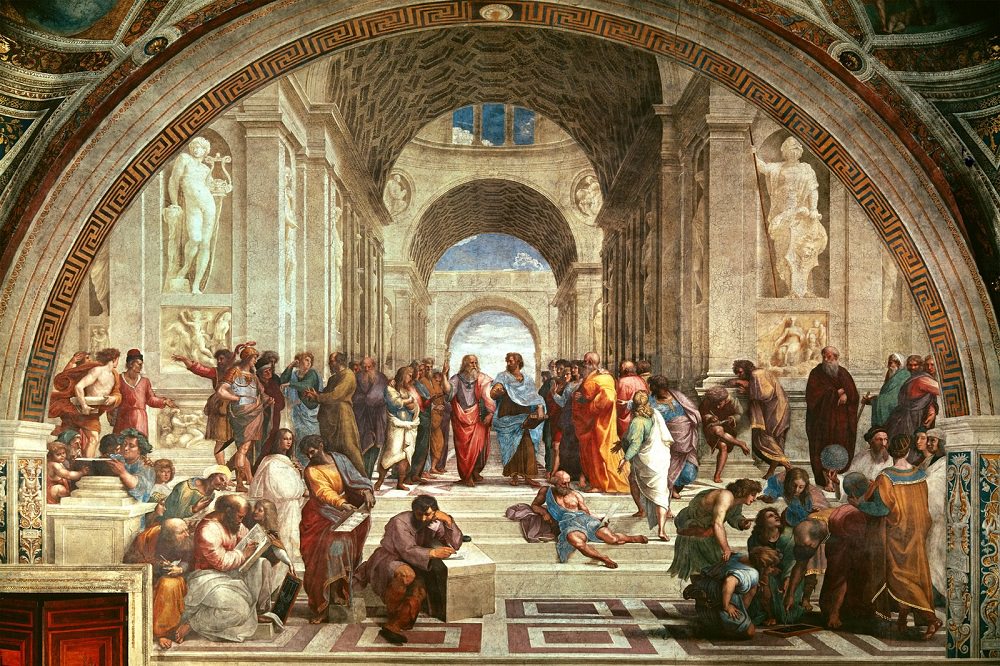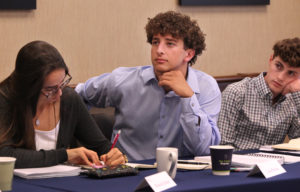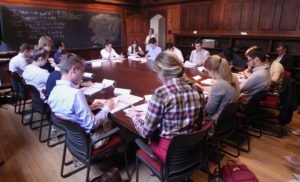

June 15-28, 2025
Princeton, New Jersey
This seminar examines two topics central to the work of the Witherspoon Institute, namely, (1) the purpose of the university and (2) friendship and marriage. Unfortunately, these topics are often taken up from the vantage point of the culture wars, rather than from a patient, careful study of first principles. In these two weeks, we examine them from the background of philosophical anthropology, the metaphysics of the person, and a study of personal action and the human good. That is, from the perspective of the nature of being, the nature of knowing, and the nature of action, both the university and human relationships can be understood as having purpose and order insofar as they contribute to, and partially constitute, human flourishing. Absent a basis in a personalist anthropology, the university and human relations tend to seek alternative ends which are profoundly alienating and potentially destructive to persons and communities.

In the first week, the seminar examines traditional texts of metaphysics and epistemology as the backdrop for the university. In the second week, readings in human action and the human good provide a basis to examine friendship, sexuality, and relationship. Discussions are lively, vigorous, and socratic. The seminar includes cultural engagements with art and film.
Join students from around the country (and the world) in this intensive course on what it means to be a human who knows, acts, and loves.
One student observed,
My graduate ethics class at Georgetown did not even touch on First Principles or natural law, so this seminar filled a gap that is missing in my graduate education. Because of this seminar I am going to audit philosophy and theology classes at CUA this upcoming semester!
Others concurred:
[This seminar] was better than the vast majority of [my] classes in college. First Principles treated Plato, Aristotle, and Aquinas (among others) with the optimism of rationality rather than with skeptical critique (which is what most of my courses at Yale tend to do with the classics.) It tapped into the living, breathing philosophy of Being that is […] sorely missed in my college classes.
Conversations with Witherspoon were more candid, more thorough, and, as a result, offered a richer discussion aimed toward seeking truth.
Readings
Readings will likely include: Plato, Aristotle, Aquinas, Voegelin, Nietzsche, Newman, Charles Taylor, Arendt, Pierre Hadot, Josef Pieper, and others.
Faculty
R. J. Snell, Director of Academic Programs, The Witherspoon Institute
David Corey, Professor of Political Science in the Honors Program, Baylor University
Kerry Cronin, Associate Professor of the Practice, Department of Philosophy, Boston College
Eligibility
This seminar is open to advanced undergraduates and recent college graduates.
Application Information
The following documents are required of applicants: cover letter explaining your interest in the seminar, resume or curriculum vitae, copies of your unofficial transcripts, and two letters of recommendation. All application materials must be submitted online on or before Monday, February 17, 2025; applications received by email will not be considered.
Click on the button below to apply:
Location and Admissions Information
Admitted students will be notified of their status in mid-March. A non-refundable $500 registration fee is required of all admitted students to offset the costs of tuition, room, and board to attend this program.
Questions?
Email us at summer@winst.org.



